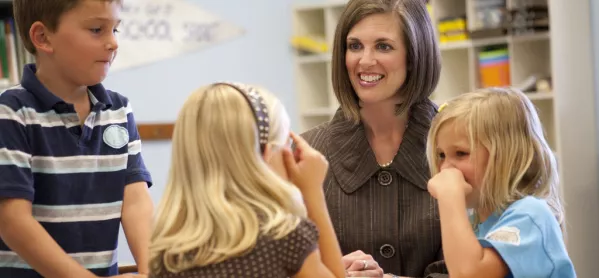It is never easy when mainstream school placements for pupils with SEND break down. Yet as an autism specialist teacher, I sometimes witness this first-hand.
Even schools who work really hard on inclusion can have a pupil with an autism spectrum condition (ASC) who isn’t making progress. Teachers can be well trained, flexible and put in place all the strategies recommended for the child − but in the end the child still may not be able to manage or settle, due to the complexity of their needs.
The environment may be overloading the child’s senses, the pace of the day might be difficult for them to manage, or the curriculum may be inaccessible to them. And often, though not always, these pupils are working at an academic level far below their peers.
A mainstream school is full of people, events, demands, sensory stimulation; these are busy places. Some children with ASC simply cannot cope with this and I question whether it is in their best interests to keep them in an environment that requires them to adapt to such overwhelming demands.
I am a big advocate of inclusive education. It is my job to help make mainstream school placements for children with ASC work. But I’m not in favour of inclusive education at the expense of a child who cannot cope in a system that isn’t designed for them.
A shout out to special schools
There are certain things that even the most inclusive schools find hard to change, such as how many children are in the class or the pace of the curriculum. And that means that a child in mainstream can be isolated, despite the school’s best efforts.
So, I’m giving a shout out to special schools.
In these schools, the environment is usually calmer and has been designed specifically with the requirements of pupils with ASC or other needs in mind. The classes are generally smaller in number and the staff well-trained and focussed entirely on the needs of the fewer children in their class.
These are schools where the curriculum can be designed to fit. They have the expertise and flexibility to teach important life skills and develop social skills alongside communication and academic skills. They also often have therapists on site and greater access to outside specialist activities to help support this approach to the curriculum.
Don’t get me wrong: special schools are not the Holy Grail of SEND education. Going to a special school can damage the employment chances of some children and can make them more likely to be excluded from society. But until the whole system is shaken up, special schools remain the best option for certain pupils.
What I really long to see is more collaboration between mainstream and specialist provision, because we have so much to teach each other. However, the children who need that collaboration most cannot just wait around for it. For them, the community of a special school may be the best thing to help them flourish and thrive.
Lynn McCann is an autism specialist, teacher and consultant at Reachout ASC. Her book, How to support students with ASC in the primary school, will be published in January 2017.
Want to keep up with the latest education news and opinion? Follow TES on Twitter and like TES on Facebook



